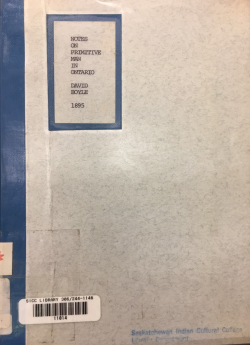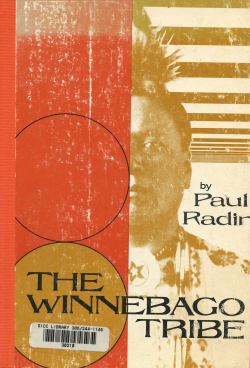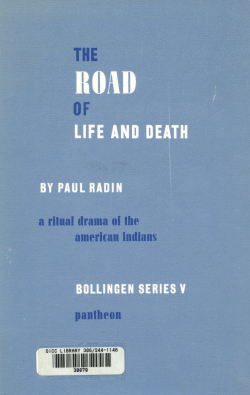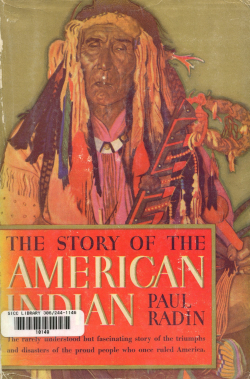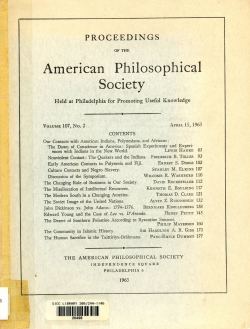Primitive man as philosopher
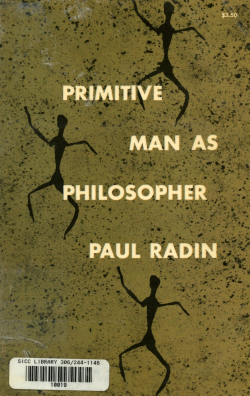
Type
Book
Authors
Paul Radin ( Radin, Paul )
ISBN 10
0486203921
ISBN 13
9780486203928
Category
General Library Collection
[ Browse Items ]
Publication Year
1957
Publisher
Pages
456
Subject
Ethnophilosophy
Tags
Abstract
"This standard anthropological study moves right into such primitive cultures as the Winnebago, Oglala Sioux, Maori, Baganda, Batak, Buin of Melanesia, Polynesian (Tahiti and Hawaii), Zuni, and Ewe to learn how primitive man thinks. It examines both the conditioning of thought which each society practices upon its members and the freedom individuals have either to deviate from group belief or to change it. Intensive discussion is given to methodological problems, such as determining cultural standards.
Based upon data obtained at first hand (much of it by the author himself in his field work), the book covers primitive thought on such topics as the relation of man to his fellows, the purpose of life, marital relations, freedom of thought, death, resignation, the nature of reality, the structure of the ego, human personality, the systematization of ideas, the concept of gods, etc. The author also analyzes folk wisdom and beliefs from many primitive cultures.
The book is not a simple compendium of traits ripped out of context. It is a brilliant interpretation of myth and symbolism in terms of the meaning assigned to them in each culture. It is factual in approach, neither tearing ideas from their matrix nor seeking far-fetched interpretations in terms of preconceived theories. Throughout, the author follows primitive men to speak for themselves and quotes extensively from original primitive documents. As a result, this is a book of enduring value for readers both in and out of the field."--Back cover.
Based upon data obtained at first hand (much of it by the author himself in his field work), the book covers primitive thought on such topics as the relation of man to his fellows, the purpose of life, marital relations, freedom of thought, death, resignation, the nature of reality, the structure of the ego, human personality, the systematization of ideas, the concept of gods, etc. The author also analyzes folk wisdom and beliefs from many primitive cultures.
The book is not a simple compendium of traits ripped out of context. It is a brilliant interpretation of myth and symbolism in terms of the meaning assigned to them in each culture. It is factual in approach, neither tearing ideas from their matrix nor seeking far-fetched interpretations in terms of preconceived theories. Throughout, the author follows primitive men to speak for themselves and quotes extensively from original primitive documents. As a result, this is a book of enduring value for readers both in and out of the field."--Back cover.
Description
xl, 456 pages ; 21 cm.
Biblio Notes
Includes index.
Number of Copies
1
| Library | Accession No | Call No | Copy No | Edition | Location | Availability |
|---|---|---|---|---|---|---|
| Main | 10019 | BF731.R3 | 1 | Yes |
